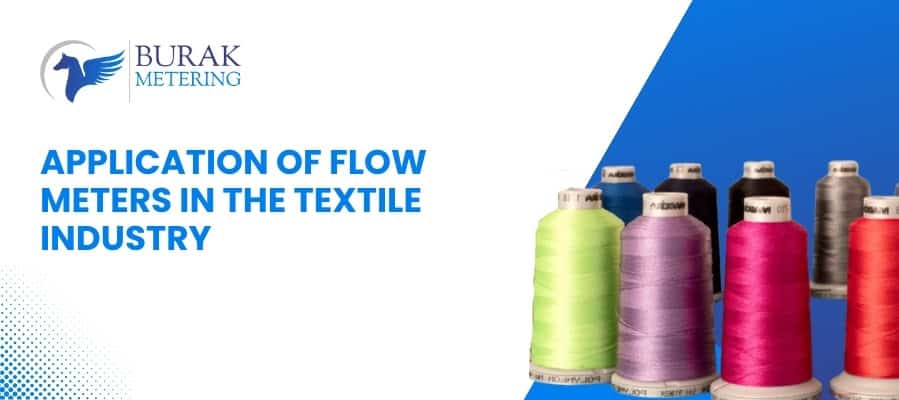 Phone
Phone

The textile industry is built on a complex combination of machinery, processes, and raw materials working together to produce the fabrics we use every day. Within this network, flow meters play an important yet often overlooked role.
These devices, designed to measure the flow of liquids and gases, ensure smooth, precise, and energy-efficient operations across multiple textile processes. In this article, we’ll explore the applications of flow meters in the textile industry and how they contribute to quality, sustainability, and cost savings.
In textile dyeing and printing, accuracy is everything. Flow meters regulate the exact flow of dyes and chemicals, ensuring uniform color distribution across fabrics. This prevents wastage, improves dye consistency, and lowers production costs. By maintaining precise chemical dosing, textile manufacturers can deliver vibrant, long-lasting fabrics while reducing material loss.
During spinning and weaving, even minor variations in chemicals, lubricants, or coolants can affect fiber strength and fabric texture. Flow meters monitor these flows to maintain consistency, helping manufacturers achieve reliable, high-quality yarns and fabrics that meet market standards.
Steam is widely used in textile production for heating, dyeing, and drying. Flow meters control the steam supply, ensuring machines get just the right amount. This not only reduces energy consumption but also helps manufacturers cut operational costs and minimize their carbon footprint.
The textile sector produces large amounts of wastewater that must be treated before disposal. Flow meters help measure and control effluent discharge, allowing manufacturers to stay compliant with environmental regulations. Accurate monitoring leads to better treatment efficiency, reduced costs, and a stronger commitment to sustainable textile production.
Flow meters also support inventory management by tracking the consumption of dyes, water, and chemicals. This data helps manufacturers streamline supply chains, avoid stockouts, and prevent overstocking. The result is improved resource utilization and better cost efficiency.
Boost sustainability and cut production costs — discover how our flow meters can transform your textile manufacturing process
In today’s competitive textile industry, precision and efficiency are key to success. Flow meters play a vital role in achieving these goals across dyeing, printing, spinning, weaving, steam control, and wastewater management. By partnering with a reliable flow meter manufacturer, textile companies can improve product quality, reduce production costs, and contribute to a greener, more sustainable future.
As the textile industry continues to innovate, the role of flow meters will only grow more critical in ensuring efficiency, quality, and environmental responsibility.
Ready to upgrade your textile operations? Contact us today and integrate the right flow meter solutions into your factory.